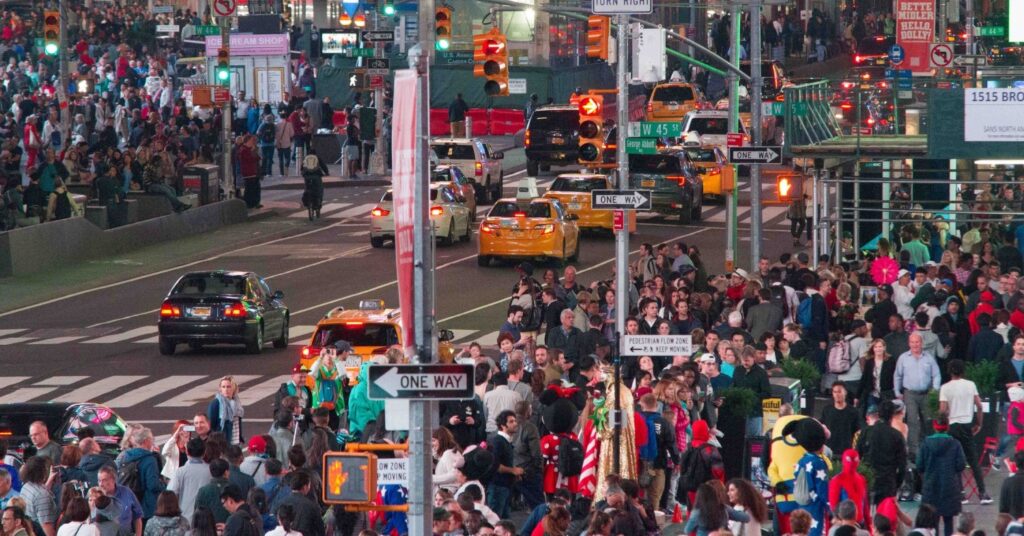
A Brief History of Artificial Intelligence
The notion of artificial intelligence has been around for centuries, [...]

In 2016, the American Academy of Social Work and Social Welfare (AASWSW) established a volunteer committee to create and define the Grand Challenges for Social Work. They solicited papers from over 80 leaders in the field regarding developments and challenges in the social work field, plus suggestions on how to improve them all. After evaluating all the submissions, the leadership team identified 12 Grand Challenges.
Each challenge is meant to rally the public to solve problems and create a better society, according to the Grand Challenges for Social Work (GCSW) organization. The collective goal is to exact “meaningful and measurable change within 10 years.” These challenges are not unsolvable dilemmas. They are issues society is equipped to tackle, if it chooses to do so.
Meeting the objectives means relying on the social work principles of social justice, inclusiveness, diversity, and equity, plus advancements in science and technology.
While there were 12 Grand Challenges identified at the outset of this initiative, there are now more, according to a position paper by the Grand Challenges Executive Committee. They place the number between 12 and 17. This article focuses on the 13 challenges the GCSW recognizes in its five-year impact report from 2021. It splits them into three categories—Individual and Family Well-Being, Stronger Social Fabric, and Just Society. It should be noted that the GCSW is not the only organization working on these issues.
The 13 challenges are:
One of the best ways to solve social problems is by developing new methods to address behavioral issues in children. To tackle this challenge, the Coalition for the Promotion of Behavioral Health (CPBH) created seven action steps to address disparities and issues surrounding how schools approach behavioral issues, including promoting public awareness, inceasing funding, and establishing a prevention framework. Though it hopes to meet 20 percent of its goals by 2026 (years after the initial 12 Grand Challenges timeline is up), the organization has made progress by working with policymakers to shift the education framework to benefit all youth.
Providing universal healthcare for all Americans is an ongoing debate in this country. While this challenge doesn’t necessarily advocate for universal healthcare, it does fight to increase access to health coverage, especially for those who cannot afford it in our current system. The work of the past five years has primarily revolved around research and advocacy, especially related to substance abuse and mental health. The next five years promise more papers, conferences, research, and appearances before legislators.
Initially conceived with the more limited goal to stop family violence, the committee soon realized the need to address violence between groups and within the overall social structure. The goal is to “reduce interpersonal violence by 10 percent within the decade.” Over the past five years, the committee has facilitated research conferences and published many papers. Professionals at Arizona State University have teamed with the AmeriCorps Survivor Link program to help domestic violence survivors. As well, a total of $7.5 million in grants at Washington University in St Louis and University of Washington facilitate research about violence against children and intimate partners.
To improve the quality of life among older adults, social workers must address systemic injustices like racism and sexism, which prevent people from living their best lives to their full potential. In the past five years, most developments have been in research to establish “evidence-based interactions.” These social work practices will be taught at every level of social work education, including Master of Social Work (MSW) and Doctor of Social Work (DSW) programs.
Social isolation is damaging to health, as demonstrated during the years of pandemic-induced physical distancing. Grand Challenge network members have published countless articles documenting its impact, spoken at numerous conferences, and offered social work initiatives to end isolation. In the next five years, members look to reshape social work curricula to include strategies that foster community bonding and address the different forms of oppression preventing people from getting together.
Completely ending homelessness sounds like a tall order—until you read statistics about how there are more empty homes than people to fill them. Members of the Grand Challenge network have backed the Ending Youth Homelessness Act in Maryland, plus other plans like providing rental vouchers—especially for people with disabilities—and continuing to invest in affordable housing. The next five years will include additional advocacy for more vouchers and access to “evidence-based psychosocial interventions” for program recipients.
Environmental issues, including urbanization and population growth, do not impact everybody equally. Unsurprisingly, those at the highest risk typically suffer the most. Environmental-focused agents of change have published studies and recommended social policies advocating for better preparations and aid to those impacted by disasters. At the educational level, the Council on Social Work Education created the Environmental Justice Curriculum Guide. (Though not in direct partnership with the Grand Challenges, Tulane University of Louisiana offers a Master of Science in Disaster Resilience Leadership that prepares graduates to help communities with climate change-related disasters.)
This Grand Challenge means harnessing big data and other developing systems or technology for social good. The rapid improvement of telehealth practices during the COVID-19 response is an excellent example of recent developments in this area. Actors’ efforts have included achieving goals like providing homes with internet access, utilizing data for problem-solving, and allowing for social workers to operate in different states (representing a significant departure from the current patchwork licensure system).
One of the most ambitious goals in the Challenge, eliminating racism also is essential to the success of the other objectives. People won’t be able to access the resources and programs they need as long as systemic bias exists. With this in mind, Eliminate Racism became an official Grand Challenge in 2020. Agents of change have been working to alter racist systems through research, roundtables, and conferences.
The only numerically driven goal, network leaders aim to “reduce the prison and jail population by 1 million by 2025.” This goal dovetails very specifically with addressing systemic racism in the criminal justice system, as most incarcerated individuals are minorities who are often unfairly treated by the legal system. Advocates have called for prison and bail reform, publishing books, papers, and a curriculum guide to back their findings. Goals for the next five years include creating better plans and advocating for more community funding and improvements to prisoner treatment.
According to Savology, most households (72 percent) do not have a written financial plan. This Grand Challenge seeks to change that by improving access to financial planning materials and services, plus changing discriminatory practices within the financial system. Goals include helping children develop good financial habits and saving for college. Network leaders have established a Financial Social Work Certificate Program and helped implement policies for children across the United States and the world. As well, social workers will be able to help people with basic financial planning in the future.
Most Americans are aware that women and people of color are paid less for the same work as their white male counterparts. This goal aims to close the gap through initiatives like tax credits for those in need, accessible childcare, and additional well-paying jobs. Leaders have lobbied policymakers, published articles, and developed new economic-focused social work curricula to accomplish these goals. The next five years will be structured around helping people build wealth and advocating alongside special interest groups for better pay and treatment of workers.
This policy encompasses many previous challenges, including creating better access to healthcare and affordable housing and eliminating racism. Social workers have approached this goal by utilizing research grants, writing working papers, speaking at conferences, and advocating to legislators. During the next five years—and beyond—network leaders will fight for equal opportunity and justice in all the Grand Challenges.
Questions or feedback? Email editor@noodle.com

The notion of artificial intelligence has been around for centuries, [...]

Public health social work addresses public health policy advocacy and [...]

A Doctor of Social Work from an accredited program qualifies [...]

MPH programs at historically Black colleges and universities combat inequality [...]

With a master's in curriculum and instruction, you can get [...]
Categorized as: Social Work, Social Work & Counseling & Psychology